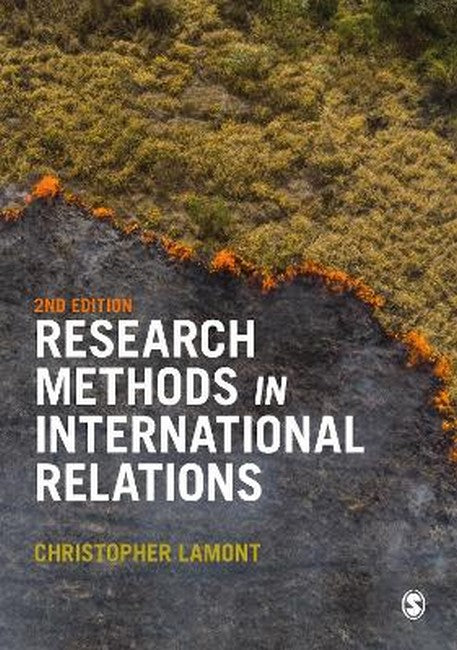Christopher Lamont is Dean of E-Track's International Relations program and Vice Dean of the Graduate School of International Relations at Tokyo International University in Japan. He holds a PhD in Politics from the University of Glasgow. He was also a Fulbright fellow at the University of Zagreb and an RCUK postdoctoral fellow at the University of Ulster. His research interests are at the intersection of global governance, technology, and international justice. He is the author of Research Methods in International Relations, now in its second edition, published by Sage. He is also co-editor (with Arnaud Kurze) of New Critical Spaces in Transitional Justice: Gender, Art, and Memory published by Indiana University Press in 2019, and Non-Western Visions of Democratization: Imagining Democracy after the Arab Spring (with Jan van der Harst and Frank Gaennsmantel), which was published by Routledge/Ashgate in 2015. His monograph, International Criminal Justice and the Politics of Compliance (Routledge/Ashgate 2010) explored the international and domestic politics of international criminal justice processes in the former Yugoslavia. In addition to his scholarly contributions, his writings have also featured in Foreign Affairs, Foreign Policy, and The Diplomat, among others.
Request Academic Copy
Please copy the ISBN for submitting review copy form
Description
Chapter 1: Methodology and Methods in International Relations Chapter 2: Research Questions and Research Design Chapter 3: Research Ethics Chapter 4: Writing a Literature Review Chapter 5: Qualitative Methods in International Relations Chapter 6: Quantitative Methods in International Relations Chapter 7: Mixed Methods Research in International Relations Chapter 8: Fieldwork in International Relations Chapter 9: Interview Research in International Relations Chapter 10: Discourse Analysis in International Relations Chapter 11: Case Study Research in International Relations Chapter 12: Writing Up Your Research
A superb primer for those embarking on research in international relations. The text outlines a range of approaches in a practical fashion, with references to the latest developments in theory as well as current affairs. Readers are taken through complex ideas about methods, the philosophy of knowledge and ethics with clarity, insight, and a nuanced appreciation of the value of different ways of going about inquiry in this field. Destined to become the 'go to' manual for existing IR researchers as well as the first book to recommend for those starting a PhD. -- Jamie Gaskarth This text is an accessible introduction to International Relations research and is particularly well-suited to undergraduates embarking on their first projects. It covers the entirety of the research process, from devising questions to writing-up findings. The new chapters on interviews and discourse analysis are great additions to this second edition. -- Dr Rachel Bennett

